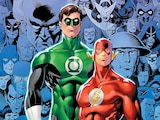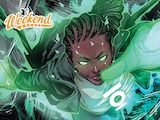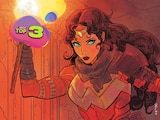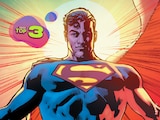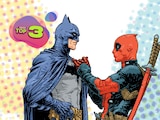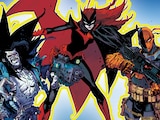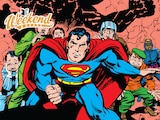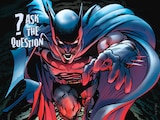DC’s villains are in a league of their own and the Joker reigns supreme. For decades, the Clown Prince of Crime has been one of the most recognizable and widely known villains in Batman’s rogues gallery, thanks to some memorable performances by Jack Nicholson, Mark Hamill, Heath Ledger and Joaquin Phoenix. The Joker traumatized an entire generation of young comic book readers when he shot Barbara Gordon and tortured her father before going on to bludgeon Jason Todd with a crowbar and leave the second Robin to perish in an explosion—all in the same year. The Joker is a polarizing figure and likely always will be.
But what fuels our preoccupation with the Joker? And why does the Joker specifically have such remarkable popularity outside of comic book circles? Why not Two-Face or Ra’s al Ghul? In comics, the Joker is interested in attacking institutions and challenging what we consider to be “civil” behavior, but make no mistake, the clown is entirely self-interested. He does everything that he does because he wants to get ahead in the world, and he’s found that he can dominate other people by disrupting their sense of order.

Outside of comics, however, the Joker has found a new kind of narrative in his films directed by Todd Phillips. Joaquin Phoenix’s take on the Joker is much more grounded than his comics counterpart and is centered on the split between his persona as a traumatized man slipping through the gaps of social services named Arthur Fleck, and a symbolic figure of class unrest in Gotham City.
Now, Joker: Folie À Deux is primed to present a completely different take on the Joker, one that makes us much more sympathetic to his plight as an inmate in Arkham. While the 2019 Joker film depicted Arthur’s descent into violence, Joker: Folie À Deux focuses more on the ways that Arthur copes with being in such an abusive environment. Regardless of how one felt about Arthur and his Joker persona in the 2019 film, the sheer brutality of his life in Arkham in Folie À Deux quickly wins the viewer over onto Arthur’s side. Joker: Folie À Deux shows that, unlike his comic book counterpart, Arthur Fleck isn’t a bully.
Certainly the actor playing Arthur has thoughts on why he resonates with so many people.
“Because Arthur so desperately wants to be heard, and you can see he has such a solitary, isolated existence, that when he lives out as Joker and comes alive, you just want to cheer that transformation on,” suggests Phoenix. “Seeing somebody be knocked around by the world and subdued and quieted, there’s something just cathartic about seeing that person suddenly explode and come alive and all these feelings are expressed. I don’t know if it’s strictly Joker that you saw—or my version of Joker—that you would have the same kind of reaction. I think it’s partially through seeing Arthur that that kind of transformation resonates more.”

This idea of suffering and empathy permeates throughout Phoenix’s version of the Joker. In comics, readers typically aren’t asked to empathize with the Joker because there is no one to empathize with. It’s been long established in comics that the Joker doesn’t actually have a real civilian name because that isn’t the point of the character. He exists purely as the Joker. That’s part of why his cruel actions are so disturbing in the comics that spawned him, because they can’t be attributed to a specific reasoning for why someone would act that way.
In contrast, Joaquin Phoenix’s Joker doesn’t exist without Arthur Fleck. And across the two Joker films, we have seen Arthur suffer time and time again because of the cruelty of others, or the failures of social services. For Arthur Fleck, becoming the Joker is the means for escaping the circumstances of his miserable life. In this sense, Phoenix’s Joker augments our understanding of the Joker from the comics because he portrays a version of the character with greater emotional range. Instead of existing as a foil to a character like Jim Gordon, the Joker films reenvision the Joker to exist in contrast to himself, Arthur Fleck.
Todd Phillips’ Joker films ask us to rethink what we know about the Clown Prince of Crime. Joker: Folie À Deux asks us to go even further and feel with the Joker, as opposed to just being reactive to him. I never would have expected that I would want to cheer on the Joker, but here I am.
Joker: Folie À Deux, directed by Todd Phillips and starring Joaquin Phoenix and Lady Gaga, is in theaters this Friday, October 4th. Click here for tickets and showtimes.
Jules Chin Greene writes about comics, TV, games and film for DC.com, and his work can also be found at Nerdist, Popverse and Multiverse of Color. You can follow him on Twitter and Bluesky at @JulesChinGreene.
NOTE: The views and opinions expressed in this feature are solely those of Jules Chin Greene and do not necessarily reflect those of DC or Warner Bros. Discovery, nor should they be read as confirmation or denial of future DC plans.

